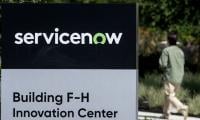Middle East on ‘radar’ of global investors as it enjoys IPO boom
Dubai/New York: Shares in Presight AI, a data analytics company, soared on Monday, their first day of trading on the Abu Dhabi bourse after a $496 million initial public offering that was 136 times oversubscribed.
The demand is no one-off. It comes two weeks after Adnoc Gas raised $2.5 billion in the emirate’s biggest listing. They are among the latest in a fast-flowing pipeline of offerings in the Middle East that contrasts sharply with Europe’s moribund market.
The 51 IPOs across the Middle East and north Africa last year was a record, according to EY. They raised $22 billion, a 179 percent increase on 2021, the advisory firm said, adding that this year’s market looked “healthy”.
Miguel Azevedo, Citigroup’s chair of investment banking for the Middle East and Africa, said the region had “come on to the radar screen”.
“Lots of people moved here after Covid and there were lots of IPOs here, so it forced the world to look at the region, which has grabbed attention when there was nothing going on in the rest of the world,” he said.
Financial regulatory reform, a privatisation push amid political stability and oil and gas prices that have risen significantly from their Covid-19 pandemic lows are driving both the IPO frenzy and private deals, bankers said.
“The constant state of turmoil has calmed down and oil prices are higher than break-even [for governments],” said Sammy Kayello, a senior adviser at Morgan Stanley.
Saudi Arabia is revamping its oil-reliant economy under its ambitious crown prince, Mohammed bin Salman. The United Arab Emirates has attracted financial groups to its commercial centre in Dubai and launched a dizzying number of listings in the oil-rich capital of Abu Dhabi. And tiny Qatar, buzzing from its successful hosting of the football World Cup, is doubling gas exports.
Private capital fund managers deployed $19.8 billion in 191 Middle East deals last year, the only place in the world to post a year-on-year increase in investment value in 2022, according to the Global Private Capital Association. In 2018, $600 million was invested.
The combination of regulatory reform and high oil prices has been most keenly felt in the Saudi stock market, with the standout deal being the 2019 $29 billion listing of oil supermajor Saudi Aramco.
This kick-started a surge of IPOs, with 2022 marking a record year. Over the past five years, market capitalisation has surged about 475 percent. The market regulator said there were now 269 listed companies compared with 188 at the end of 2017, with another 80 preparing to float.
In Abu Dhabi, the national oil company has floated a series of assets, fostering a similar surge of listings.
Fast food operator Americana, owned by the Saudi sovereign Public Investment Fund and Dubai businessman Mohamed Alabbar, listed on both Abu Dhabi and Riyadh exchanges in December amid surging demand.
“It’s the same playbook from Europe — in the UK it was the mid to late ’80s with the privatisation drive that encouraged activity,” said a senior US-based capital markets banker. “It helped stimulate markets and promote more of an equity culture and encourage private enterprise to come public.”
Dubai’s successful handling of the pandemic lured crypto billionaires and financial executives who took advantage of its open economy. Many have put down roots, persuading their firms to follow.
Hedge funds and asset managers, including Brevan Howard and ExodusPoint, have set up in the city’s financial district, which is now in talks to license another 50 hedge funds as managers eye the tax-free sun and advantageous trading window spanning Asia and the US.
“International investors are coming — big, proper grown-up and respected long-only asset managers in the US and Europe investing with their own people to get ready to make more investments in that world [the Gulf],” said another US investment banker.
Dubai, having seen its neighbours’ capital markets go into overdrive, last year embarked on its own privatisation campaign, pledging to list 10 state-related entities. Four have already been listed, including utility Dewa and road-toll company Salik.
Azevedo said the region was moving into a “second phase” of listings, with “non-government entities IPO-ing in the UAE, both Dubai and Abu Dhabi”. “This year will see a few family-owned companies coming through,” he added.
Family-owned businesses make up as much as 90 percent of the private sectors in countries such as Saudi Arabia and the UAE. As founders die, their heirs often fall into recriminations. Going public is a means of imposing corporate governance and succession-planning arrangements to avoid familial strife.
Al Ansari Financial Services, a family-owned company and the UAE’s largest exchange house chain, on Monday raised $210 million amid strong demand for its IPO on Dubai’s stock market. Other regional family-owned groups mature enough to list shares publicly include Dubai-based malls conglomerate Majid Al Futtaim, Lebanese-owned retailer Azadea and Abu Dhabi hypermarket chain Lulu.
Azevedo predicted these would be followed by a third wave of “young fintech firms and tech-enabled companies that have been raising money in the private capital market”.
Potential candidates include ag-tech company Pure Harvest, cloud kitchen platform Kitopi and classified advertising firm Dubizzle, bankers say.
Recent banking collapses in the US and Europe are reviving concerns about a repeat of the global financial crisis, when the Middle East was booming as the rest of the world went into financial meltdown. At the time, the Gulf boasted that it had “decoupled” from the global economy before crashing into its own debt and oil price crisis of 2009.
“It’s slightly different now because of the stronger balance sheets and the ongoing transformation programmes,” said Tarek Fadlallah, chief executive of Nomura Asset Management, Middle East. “During the GFC, oil prices fell sharply and a big difference this time is that prices remain within a comfort zone.”
-
 Therapist Killed In Office As Former Client Launches Knife Attack
Therapist Killed In Office As Former Client Launches Knife Attack -
 Gaten Matarazzo Brands 'Stranger Things' Final Scene 'nerve-racking'
Gaten Matarazzo Brands 'Stranger Things' Final Scene 'nerve-racking' -
 David Beckham Speaks Out After Son Brooklyn Beckham's Shocking Post
David Beckham Speaks Out After Son Brooklyn Beckham's Shocking Post -
 Sophie Turner Gets Candid About 'imposter Sydrome' Post 'GOT'
Sophie Turner Gets Candid About 'imposter Sydrome' Post 'GOT' -
 When Nicola Peltz's Boyfriend Anwar Hadid Found Solace In Dua Lipa's Arms
When Nicola Peltz's Boyfriend Anwar Hadid Found Solace In Dua Lipa's Arms -
 Claire Foy Reveals Rare Impact Of 'The Crown' Gig On Career
Claire Foy Reveals Rare Impact Of 'The Crown' Gig On Career -
 Megan Thee Stallion Teases New Music On The Way
Megan Thee Stallion Teases New Music On The Way -
 Blonde Kate Stuns In Photos With Prince William During Rare Joint Engagement
Blonde Kate Stuns In Photos With Prince William During Rare Joint Engagement -
 Kate Gosselin Reveals Harrowing Moment Thief Nearly Took Her Down
Kate Gosselin Reveals Harrowing Moment Thief Nearly Took Her Down -
 Billy Bob Thornton Weighs In On Contrast To 'Landman' Role
Billy Bob Thornton Weighs In On Contrast To 'Landman' Role -
 Amanda Holden May Swap Position To Different Reality Show: See Which
Amanda Holden May Swap Position To Different Reality Show: See Which -
 The Truth Behind Victoria Beckham's 'inappropriate' Wedding Dance Video
The Truth Behind Victoria Beckham's 'inappropriate' Wedding Dance Video -
 AI Startup Raises $480 Million At $4.5 Billion Valuation In Earlier Gains
AI Startup Raises $480 Million At $4.5 Billion Valuation In Earlier Gains -
 North Carolina Woman Accused Of Serving Victims With Poisoned Drinks
North Carolina Woman Accused Of Serving Victims With Poisoned Drinks -
 Robert Redford’s Daughter Amy Sings Praises Of Late Father
Robert Redford’s Daughter Amy Sings Praises Of Late Father -
 OpenAI And ServiceNow Team Up To Embed ChatGPT In Business Workflows
OpenAI And ServiceNow Team Up To Embed ChatGPT In Business Workflows



